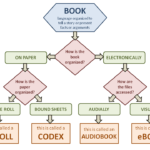
 Recently, a writer friend of mine (let’s call this person T) sent me a link to a story at The Onion shredding the pretensions of a bad writer who has no idea he’s a bad writer, called “Novelist Has Whole Shitty World Plotted Out.”
Recently, a writer friend of mine (let’s call this person T) sent me a link to a story at The Onion shredding the pretensions of a bad writer who has no idea he’s a bad writer, called “Novelist Has Whole Shitty World Plotted Out.”
Explaining the link, T had added a simple message: “God, this makes me self-conscious as hell.”
There is no reason to be self-conscious, because T is one of the best writers I know, published or not, and one of the few writers whose voice moves me to envy. Reading Stephen King’s On Writing: A Memoir of the Craft , I was repeatedly reminded of T’s writing by King’s easy and evocative style. T is a natural.
, I was repeatedly reminded of T’s writing by King’s easy and evocative style. T is a natural.
At the same time, another friend of mine asked me to read a story written by an acquaintance, whom we will call C. C has been writing for years, is well-educated, and well-versed in all the Do’s & Don’ts of writery. Yet, lurking in the first paragraph were half a dozen cringe-worthy mistakes that any decent writer should know to avoid. As I read on, it didn’t get better, so I reluctantly told my friend that I thought the story was quite awful.
We were each relieved to find the other in agreement.
Yet, while T is hesitant despite natural talent, C is determined and confident all out of proportion to reality. I had stumbled onto a perfect case study in the contrast between over-confident yet lousy writers and talented yet self-doubting writers, demonstrating the perverse influence the “Dunning-Kruger Effect” has on literature, a problem I have discussed before.
_
Continue reading →

 When I read the news that scientists had captured and separated wild dolphins to investigate their use of “signature whistles” to call out to each other, the sounds that earlier research had concluded was a sort of name that individual dolphins used to identify themselves, I was touched. After all, it was clearly evidence of a deep and emotional connection between these very intelligent animals.
When I read the news that scientists had captured and separated wild dolphins to investigate their use of “signature whistles” to call out to each other, the sounds that earlier research had concluded was a sort of name that individual dolphins used to identify themselves, I was touched. After all, it was clearly evidence of a deep and emotional connection between these very intelligent animals.

 Hey, Nelson, why didn’t you identify today as Thanksgiving? And, what the hell is “Brumalia” anyway?
Hey, Nelson, why didn’t you identify today as Thanksgiving? And, what the hell is “Brumalia” anyway?


 Wow, I spoke too soon. Normally I publish the daily reading around noon, and I should have waited today, too. Lots of cool stuff since then.
Wow, I spoke too soon. Normally I publish the daily reading around noon, and I should have waited today, too. Lots of cool stuff since then.
 Accidentally left Raymond Chandler‘s anthology,
Accidentally left Raymond Chandler‘s anthology, 

 I finished Charles Bukowski‘s
I finished Charles Bukowski‘s 
 General Palmer’s words, in condemnation of US policy in Việt Nam, speak a universal truth that transcends that particular war, transcends warfare itself, and can be applied to any aspect of life. Including publishing.
General Palmer’s words, in condemnation of US policy in Việt Nam, speak a universal truth that transcends that particular war, transcends warfare itself, and can be applied to any aspect of life. Including publishing.
 Recently, a writer friend of mine (let’s call this person T) sent me a link to a story at The Onion shredding the pretensions of a bad writer who has no idea he’s a bad writer, called “
Recently, a writer friend of mine (let’s call this person T) sent me a link to a story at The Onion shredding the pretensions of a bad writer who has no idea he’s a bad writer, called “